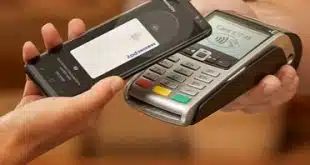LaterPay Inc. released its LaterPay button as a tool to decrease payment friction, especially for nonprofit organizations and journalism sites, the company announced Thursday.
Munich-based LaterPay, which has a U.S. office in New York City, says the button is designed to be a low-friction way to enable consumers to make a monetary contribution with one click without registering or paying in advance.
The LaterPay button is presented on a site with “Contribute $0.50 Now, Pay Later” in one example. LaterPay says it defers the registration process until a consumer’s purchases reach a $5 threshold.
Once the threshold is reached, the consumer is asked to settle the account with a payment card bearing a Visa Inc., Mastercard Inc., American Express Co., or Discover Financial Services mark.
“Only then, once your value proposition is firmly established, is the customer asked to register and pay, which results in conversion rates of 85 percent,” LaterPay says in a press release. Cart-abandonment rates with other payment methods can be as high as 98%, the company says.
“You only have seconds to harness the user’s impulse to contribute and support you after reading or watching something great,” said LaterPay chief executive Cosmin Ene. “By giving users the chance to contribute, support, pledge or donate now, and pay later, within seconds, publishers and NGOs can monetize on a user’s intention to support, while maintaining a superior user experience, and being considerate of a user’s time.”
Integrating the LaterPay button into a site requires placing one line of code into a Web site or content management system.
In related news, Science magazine, the official publication of the American Association for the Advancement of Science, introduced a metered paywall for its news section after nearly a year of evaluating reader response.




